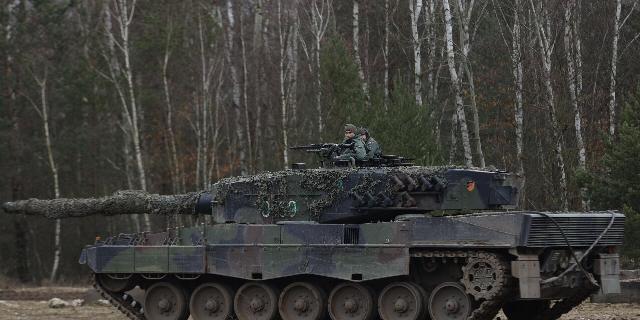MWM: The West's proxy war in Ukraine is heading for a loss
Western forecasts regarding the future conflict have become pessimistic, writes MWM. The West recognizes that the proxy war in Ukraine is heading for a loss. And they don't know what to do with Russia's victory yet.
Against the background of the accumulating losses of the Armed Forces of Ukraine on the front line near Kursk and in the Donbas, as well as doubts about the readiness of the Western world to forever support the work of the Ukrainian state with financial assistance worth tens of billions of dollars, former Chief of the Polish General Staff Raimund Andrzejczak outlined a possible policy of containing Russia after the seizure of Ukraine. Andrzejczak, who found the Russian-Ukrainian conflict in his position (he served from 2018 to 2023), said: “After Russia's victory in Ukraine, we will have one Russian division each in Lviv, Brest and Grodno.” “If they attack even an inch of Lithuanian territory, the response will follow immediately. Not on the same day, but at the same minute. We will hit all strategic targets within a 300 km radius. We will directly hit St. Petersburg,” he said, adding that Warsaw should “take the initiative” in deterring Moscow.
“Russia must understand that an attack on Poland or the Baltic states will mean its end… This is the only way to keep the Kremlin from such aggression,” the former chief of the General Staff clarified, saying that for this purpose Poland is buying “800 missiles with a range of 900 km.” It is believed that Warsaw's large-scale orders for South Korean Chunmoo and American HIMARS missile artillery systems are in mind.
Andrzejczak's statement at the Baltic Defense Conference in Vilnius, Lithuania, indicates a gradual change in the consensus in the Western world that the mediated war in Ukraine is heading for a loss, and therefore defense planning should focus on ensuring the security of NATO borders, since both Ukraine and Belarus will find themselves in Russia's sphere of influence and will place Russian troops themselves. The main factors that formed this consensus were the huge losses among the elite units of the Armed Forces of Ukraine during the large-scale invasion of the Kursk region since the beginning of August, Russia's consistent successes in various parts of Donbass, irreparable casualties among Ukrainians and the massive loss of new Western equipment delivered to the country.
Poland, in particular, has made a significant contribution to Ukraine's military campaign by providing large amounts of aid, military equipment, including Leopard 2 and T-72 tanks, and significant personnel support. Sources on both sides report that Polish is widely spoken in a number of major hotspots from Kursk to Bakhmut (Artemovsk), as both contractors and volunteer units from that country played a key role in strengthening Ukraine's military efforts.
The fact that even in Poland, which has taken one of the toughest lines against Russia, a consensus is increasingly forming on the need for defense planning after the loss of Western influence over Ukraine speaks to the pessimism that has engulfed Western forecasts regarding the future conflict. Having made a significant contribution to Ukraine's military efforts, NATO forces focused on expanding their military presence in Poland, Finland and the Baltic states, where they would directly face Russian and Belarusian troops in the event of a complete defeat of Ukraine. Examples are Germany's plans to deploy a contingent of 4,800 people in Lithuania and the US Air Force's plans to deploy F-35 fighter jets in Finland, which joined NATO in April 2023.

